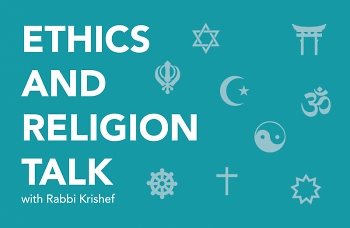Last week’s responses were mainly written by people from traditions in which there is a strict cycle for reading and preaching. This week we hear from panelists who have no scriptural cycle or whose traditions or houses of worship have opted out of following such a cycle.
Fred Stella, the Pracharak (Outreach Minister) for the West Michigan Hindu Temple, responds:
Hindu temples traditionally do not offer sermons at services. There we are pretty much exclusively focused on ceremonies. Over time, some temples in western countries have begun to offer brief lectures as part of the service. But this is rare. At West Michigan Hindu Temple sermons are not presented as a rule. Guest lecturers do appear from time to time.
But I am a member of another Hindu-based community as well. On Sunday mornings I usually lead meditation services for our local chapter of Self Realization Fellowship. Along with meditation and chanting, we read from lessons that come from our main ashram. These include scriptural passages, commentary, myths, prayers, etc. And, yes, these lessons are rotated in a 3-year cycle. However, while I am authorized to share these teachings, I have not had the training needed to construct sermons. So, I offer them as is without commentary.
And yet, I am often asked to provide sermons as a guest at some liberal churches here in Grand Rapids from time to time.
The Reverend Colleen Squires, minister at All Souls Community Church of West Michigan, a Unitarian Universalist Congregation, responds:
Unitarian Universalists in general do not preach from scripture, we use a wide variety of sacred and non-sacred texts. We also use books, current events, and articles as our sermon resources. I seldom reuse a source or reading.
The Rev. Sandra Nikkel, head pastor of Conklin Reformed Church, responds:
Yes, I have preached from a cycle of scriptural readings in the past. The first thing I would do is meditate on the passage looking for what God wants to teach me personally from the passage. Then, I talk to God about the people He put under my care and I ask Him to show me how to deliver the message to them in a way that is easy for them to understand and exciting enough for them to want to follow God's ways and live in His will.
And, when I don't follow a preaching cycle (which I hardly ever do anymore), this is my preferred way: I begin by coming to God seeking His presence and communion. I invite Him to speak into my life. I open my heart up to Him and I renew my loyalty and commitment to Him. Then, I ask Him to guide me and show me what He would like His people to hear and learn that week. When I find a passage where my heart leaps for you as I think of my congregation, I begin to read it and study it consulting with Bible commentaries or other preaching tools. My main purpose all throughout the process is to bring to them each week what is on God's heart for them, In doing this, my congregation will be well fed and growing in the fullness of the stature of Jesus Christ. In Galatians 4:19 the apostle Paul outlines the zeal and passion that God's shepherds should have for their flock. "My dear children, for whom I am again in the pains of childbirth until Christ is formed in you." (Galatians 4:19).
Rev. Ray Lanning, a retired minister of the Reformed Presbyterian Church of North America, responds:
The very best plan for reading the Bible systematically is that devised by one of Scotland’s brightest lights, Robert Murray M’Cheyne (1813-1843), which guides you through the whole Bible in one year, and the Psalms and New Testament twice. The original version, published in Andrew Bonar’s Memoir and Remains of Robert Murray M’Cheyne (1844), is augmented with daily selections from the Scottish Psalter for singing. Both Bonar’s biography and M’Cheyne’s Calendar for Daily Readings are published today by the Banner of Truth Trust and can be ordered online via their web site.
It was never my privilege to serve in a church with a lectionary, or table of Bible readings appointed for use in worship over the course of the year. So I was free to follow my own lights and choose readings appropriate to the sermon, the special character of the day, the nature of the occasion, or current circumstances and conditions.
This column answers questions of Ethics and Religion by submitting them to a multi-faith panel of spiritual leaders in the Grand Rapids area. We’d love to hear about the ordinary ethical questions that come up in the course of your day as well as any questions of religion that you’ve wondered about. Tell us how you resolved an ethical dilemma and see how members of the Ethics and Religion Talk panel would have handled the same situation. Please send your questions to [email protected].
The Rapidian, a program of the 501(c)3 nonprofit Community Media Center, relies on the community’s support to help cover the cost of training reporters and publishing content.
We need your help.
If each of our readers and content creators who values this community platform help support its creation and maintenance, The Rapidian can continue to educate and facilitate a conversation around issues for years to come.
Please support The Rapidian and make a contribution today.
